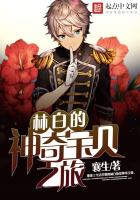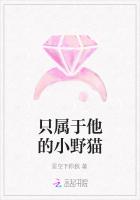Mandra’s Visit to Jiankang:The Buddhist Connection between China and Ancient Cambodia
WANG Bangwei (Peking University)
Abstract
People generally know the connection between Central Asia and China while Buddhism spread from India to the East. However, as an important country situated not far from South China, the Kingdom of Funan, i.e. ancient Cambodia, also contributed to the building of Chinese Buddhism. Based on the accounts in Chinese literature and the others, the paper will discuss the visit of Mandra, a Buddhist s' ramana from Funan to Jiankang and the meaning behind it.
Historians of Chinese Buddhism all know the importance of three biographic books of prominent monks, Gaoseng Zhuan (The Biographies of the Prominent Monks), Xu Gaoseng Zhuan (The Continuous Biographies of the Prominent Monks) and Song Gaoseng Zhuan (The Song Biographies of the Prominent Monks). The second one, Xu Gaoseng Zhuan, being called Tang Gaoseng Zhuan (The Tang Biographies of the Prominent Monks) as well, covers the period from the beginning of the sixth century to the middle of the seventh century. It was written by Daoxuan, a well known Buddhist monk scholar early in the Tang Dynasty. Though most of the figures in the book are Chinese Buddhist monks, in some chapters, particularly in the Chapter of the Text Translators, a number of Buddhist monks from other countries are included. The experiences of these monks, either in their home places or in China, provide materials showing connections between these countries and China. One example of these countries is ancient Cambodia.
In Daoxuans book the first biography is of Samghapāla, a Buddhist Master from the country of Funan, that is, ancient Cambodia. Attached to the biography of Samghapāla are three short biographies of which the first one is of Mandra, or Mantuoluo in Chinese transliteration. It says as follows:
Early in the time of Liang, there was another s' ramana called Mantuoluo (Mandra) from Funan. In the language of Liang (i.e. Chinese) his name means “sounding lightly”. He brought a lot of Indian texts and presented them to the Emperor. The Emperor ordered him to join with Samghapāla in translating the texts of The Ratnamegha, The Dharmadhatu and The Majus' rīprajāpāramitā. The texts they produced are altogether in eleven scrolls. Although he was involved in the translation work, he did not know the language of Liang very well. So the meaning of the translations produced by him is not easily understood. And in the Biography of Samghapāla it says as follows:
In the language of Liang the name of Samghapāla means “keeper of samgha” or “armour of samgha (Samghavarman·)”. He is a native of Funan. He was very clever at his early age and inclined to Buddhism. At the schooling age he joined the samgha. He was special skilled in studying the essays of Abhidharma. His great reputation was known all of the South Sea area. After being fully ordained he widely studied the Buddhist Vinaya. He was so brave that he wanted to travel abroad and propagate Buddhism. Hearing that in the country of Qi (China) Buddhism was advocated he got on boat and arrived at the capital of China. He lived at the Monastery of Zhengguan and became a disciple of Gunabhadra.Under the guidance of Gunabhadra he studied the Mahāyāna texts intelligently. Within a short time, he learned a lot and the scripts and languages of several countries. Just at this time the Dynasty of Qi fell down and Buddhism was declining. Samghapāla only cleaned his body, let his heart be quiet, stopped connection with the outside. He stayed in room and cultivated his own personality. While the Dynasty of Great Liang Was established, the government searched for the talents. Thus in the fifth year of Tianjian (506 C.E), Samghapāla was invited to translate texts at the Hall of Shouguang, the Garden of Hualin, the Monastery of Zhengguan, the House of Zhanyun and House of Funan, all the five places being located in Yangdu (Jiankang, the capital of the Liang, todays Nanjing). Until the seventeenth year of Tianjian (518 C.E), he had translated eleven texts, consisting of fortyeight scrolls. The titles include The Sūtra of King As' oka, The Vimuttimagga and the others.
Through this we know that Mandra arrived in China a little bit later than Samghapāla and cooperated with the latter while he started the translating work. The texts translated by Mandra now can be found in the Chinese Buddhist Tripitaka. Daoxuan also edited a bibliographical book called Datang Neidian Lu (The Buddhist Text Catalogue of the Great Tang). In the fourth scroll of the book we find the same account with a little more details. The texts Mandra produced are listed as follows:
The Sūtra of Ratanmegha, in seven scrolls.
Fajie tixing wufenbie jing, in two scrolls.
The Prajāpāramitāsūtra of Majus' ri, in two scrolls.
In the fourth scroll of another bibliographical book, Gujin Yijing Tuji (The Pictures and Records of Texts Translation in Ancient and Today) by another Buddhist monk scholar, Jingmai, the date, the second year of Tianjian, in which Mandra arrived at Jiankang, the capital of Liang China, is provided.Taisho T














